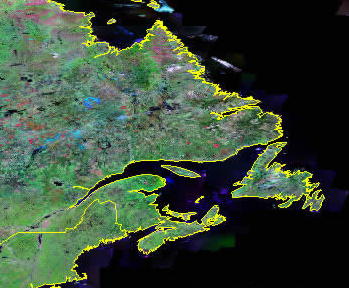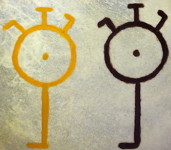Terms & Acronyms
Two-Spirit is a term that we currently use, but it may also include terms that we hope to add that are more specific to our cultural, linguistic, philosophical, spiritual, and ceremonial beliefs about identity, gender, sexuality, and other significant references about being L'nu (singular) or L'nuk (plural) which is a Mi'kmaw word for people who speak the same tongue or language. There are variations of Two-Spirit:
Two-Spirit (noun, hyphenated), Two Spirit (noun, not hyphenated), Two-Spirited (adjective).
Two-Spirit is a pan-Indigenous term that was created in 1990 at the Indigenous Lesbian/Gay international gathering in Winnipeg to replace berdache, a colonial term with negative connotations. There are cultural-specific terms to describe people who are Two-Spirited in other Indigenous groups on Turtle Island (North America) and world cultures. There is a publication section about Two-Spirits elsewhere on the website.
Terms Used by Two-spirits
The Canadian AIDS Society published a report in 2003 that provided a scope on the two-spirit issues based on their focus to look at homophobia and heterosexism across Canada. Its author Bill Ryan shared a snapshot of two-spirit categories that are intersectional to LGBTQ categories as well.
There are a number of categories which can be used to define gender and sexual orientation of Aboriginal people, some are related to Two Spirit orientations. The majority tend not to disclose their orientation(s) and identify only in their peer group, or be ambiguous about it. They reside in urban, rural, and First Nations, Metis, and Inuit communities. These categories are presented here because they are relevant to promoting healthy sexuality for Two Spirits and safer-sex for all Aboriginals (Ryan, 2003, p. 33)
- MSM or WSW
- Heterosexual Aboriginals who have emotional and sexual relationships with the same gender. Many are married and keep this part of their life hidden and only identify as heterosexual.
- Bisexual
- Aboriginals who have emotional and sexual relationships with both genders. Many are married and identify as heterosexual, but may also be ambiguous about their bisexual orientation
- Neutrals
- Aboriginals who have emotional and sexual relationships with the same gender who never disclose their orientation.
- Gay or Lesbian
- Aboriginals who have emotional and sexual relationships with the same gender who only identify as gay or lesbian.
- Two Spirit
- Aboriginals who have emotional and sexual relationships with the same gender, who only identify as Two Spirit (having the attributes and spirit of both male and female).
- Two Spirit (Traditional)
- Aboriginals who demonstrate their identity primarily through culture and spirituality. They have emotional and sexual relationships with the same gender.
- Two Spirit/GLBT
- Aboriginals who have emotional and sexual relationships with the same gender, who identify using one, either or both definitions.
- Transgender
- Aboriginals who are biologically male or female who are partially or completely the other gender. They identify as transgender, heterosexual or as a Neutral would and may have emotional and sexual relationships with heterosexuals or same gender partners. They may opt to have sex reassignment surgery.
- Two Spirit (Transgender)
- Aboriginals who are biologically male or female who are partially or completely the other gender. They identify as Two Spirit and may have emotional and sexual relationships with heterosexuals or same gender partners
- Two Spirit (Asexual)
- Aboriginals who demonstrate their identity primarily through culture and spirituality. The may be emotionally and sexually attracted to the same gender but are not sexually active. They also may identify as Two Spirit
- Indigenous (GLBT)
- Aboriginals who fulfill various traditional (Two Spirit/GLBT) roles in their culture and identify using indigenous language identifiers such as “winkte” (Lakota). They have emotional and sexual relationships with the same gender.

Our Nations
The Wabanaki Two-Spirit Alliance is a group of Mi'kmaq, Wolastoqiyik, Passamaquoddy, Abenaki and Penobscot, Innu, Inuit and the Métis of Labrador First Nations Two-Spirit People, and our allies. We use many terms to self-identify, such as the English terms Gay, Lesbian, Bisexual, Trans, Queer, among others that may have not been introduced.
In our region, there have been discussions since the emergence of the Alliance to come up with terms that best contextualizes what is being Two-Spirit in our Wabanaki languages. While there are terms that may have been used by W2SA, it is understood that the term/s may be varied according to context, ceremony, use, and language. There is no simple word that may encompass who is Two-Spirit like the word "queer" that was reclaimed as a universal term in English for L-G-B-T and other letters to represent non-gender binary, non-conforming, and various inclusions of sexuality/diversity, which may relate to identity.
